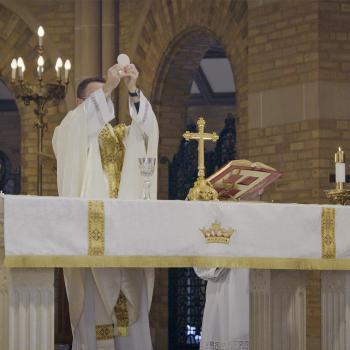This means that a biblical Christian faith will find some things at odds with every American political party. And we will likely find some things that we can celebrate in every political party. But—and this is terribly important to note—we must manifestly reject the notion that America is the historical savior of the world. I love my homeland, and love the people of this place, and love many of our traditions and cultural artifacts. But I find, especially here in the Bible Belt, Christians using idolatrous language about America—"America will always stand" and "America is the last great hope of the world"—and they fail to see how this is altogether a rejection of the Gospel. It is Jesus of Nazareth, according to scripture, who is the hope of the world, and our job as the church is to bear faithful witness to this one whose Kingdom alone will triumph over all other kingdoms, powers, rulers, and authorities.
What most surprised you in researching and writing this book?
I discovered again how incredibly beautiful and terribly frightening is the biblical story of Jesus: loving his enemies unto his own unjust death, and vindicated when raised through the power of God. This same Jesus says to us to love our enemies, and to take up our own crosses and follow him.
Second, and probably not as important, and not really a surprise to me because I am, after all, a southerner who was taught as a child to enjoy talking to people, but still: I re-discovered how much I like talking to very diverse people, such as the adamant anti-Muslim author in Nashville, or the life-long member of the PLO in Hebron; a liberal Jewish academic in Israel, and a Palestinian Christian advocate of non-violence in East Jerusalem; a poor young boy who toured me through a Palestinian refugee camp, and the president of Al Quds University. I learned a lot from all these people.
What conversations do you want this book to inspire?
I would like to see Christians question whether the Gospel has been co-opted by the powers-that-be, co-opted by the American story, or co-opted by the Enlightenment story. I would like for us to find good stories to tell about places and situations in which Christians and Muslims, in faithfulness to their own understanding of who the God of Abraham, Isaac, and Jacob actually is, have lived as good neighbors, perhaps even suffering for one another. I would like to see those who are fearful or angry go seek out those whom they fear, and strive to sit at a table with them, sharing a meal or coffee or tea.
What was the hardest thing about writing this book?
Dealing with my own character defects, of pride on the one hand and fear on the other: how does one say things that one thinks need to be said, while avoiding conceit on one side, or cowardice on the other? These are volatile and serious issues, and one would be foolish to take them lightly.
For more conversation and resources for Who Is My Enemy?, including a book excerpt, visit the Patheos Book Club.




